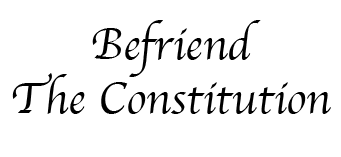Our society is not held together just by law and its enforcement, but most importantly by voluntary obedience to the unenforceable and by widespread adherence to unwritten norms of right or righteous behavior. Religious belief in right and wrong is a vital influence to advocate and persuade such voluntary compliance by a large proportion of our citizens. Others, of course, have a moral compass not expressly grounded in religion. John Adams relied on all of these when he wisely observed that
“we have no government armed with power capable of contending with human passions unbridled by morality and religion. Avarice, ambition, revenge, or gallantry, would break the strongest cords of our Constitution as a whale goes through a net. Our Constitution was made only for a moral and religious people. It is wholly inadequate to the government of any other.”
Even the agnostic Oxford-educated British journalist Melanie Phillips admitted that
“one does not have to be a religious believer to grasp that the core values of Western Civilization are grounded in religion, and to be concerned that the erosion of religious observance therefore undermines those values and the ‘secular ideas’ they reflect.”


